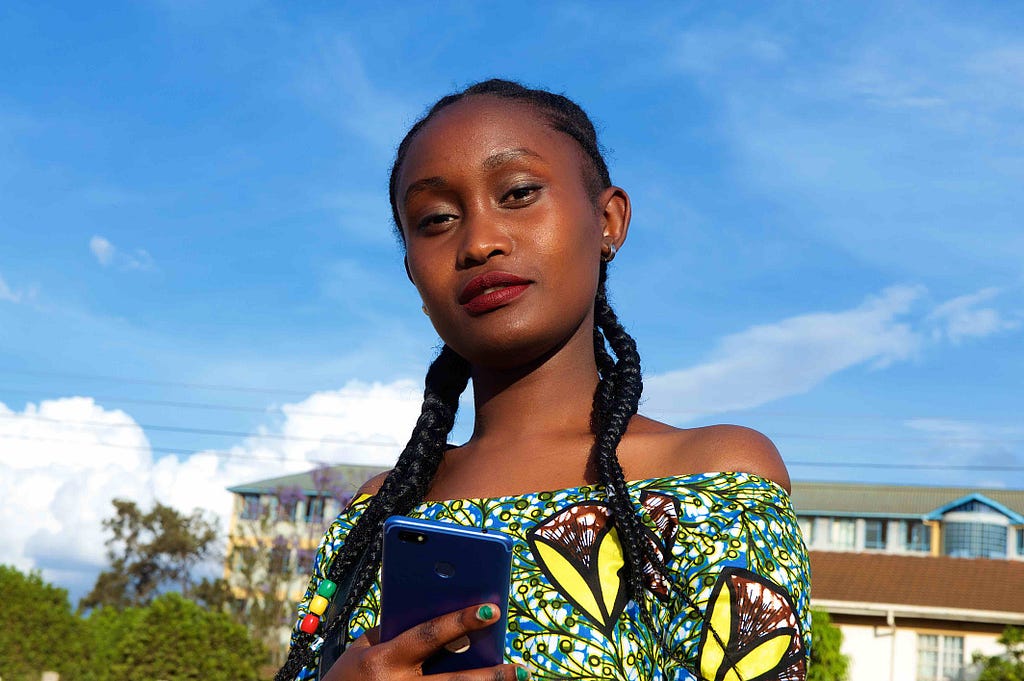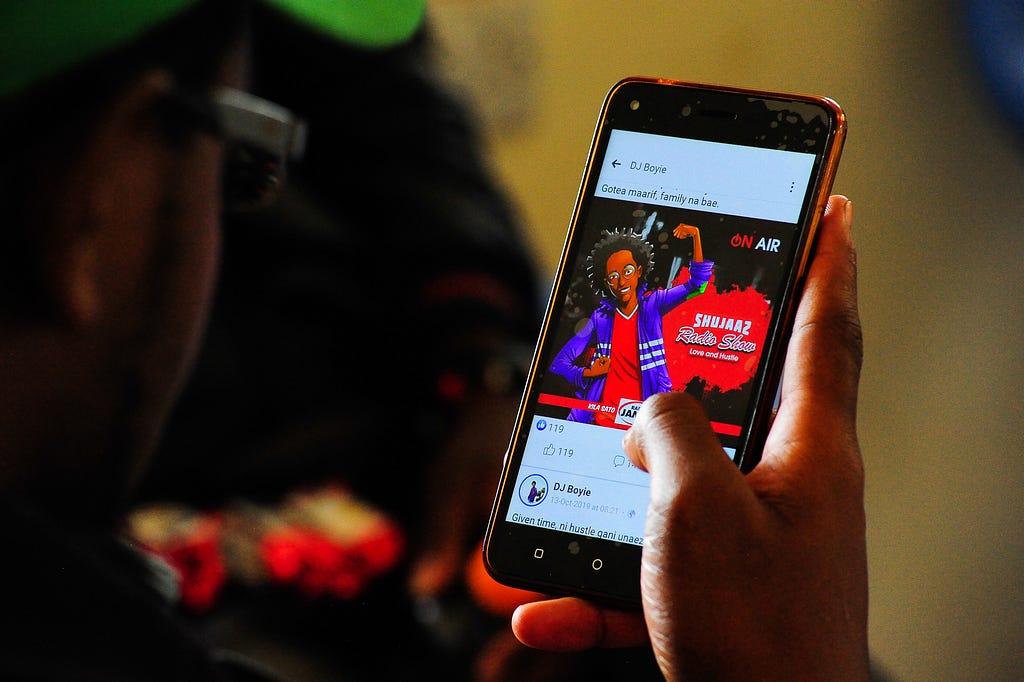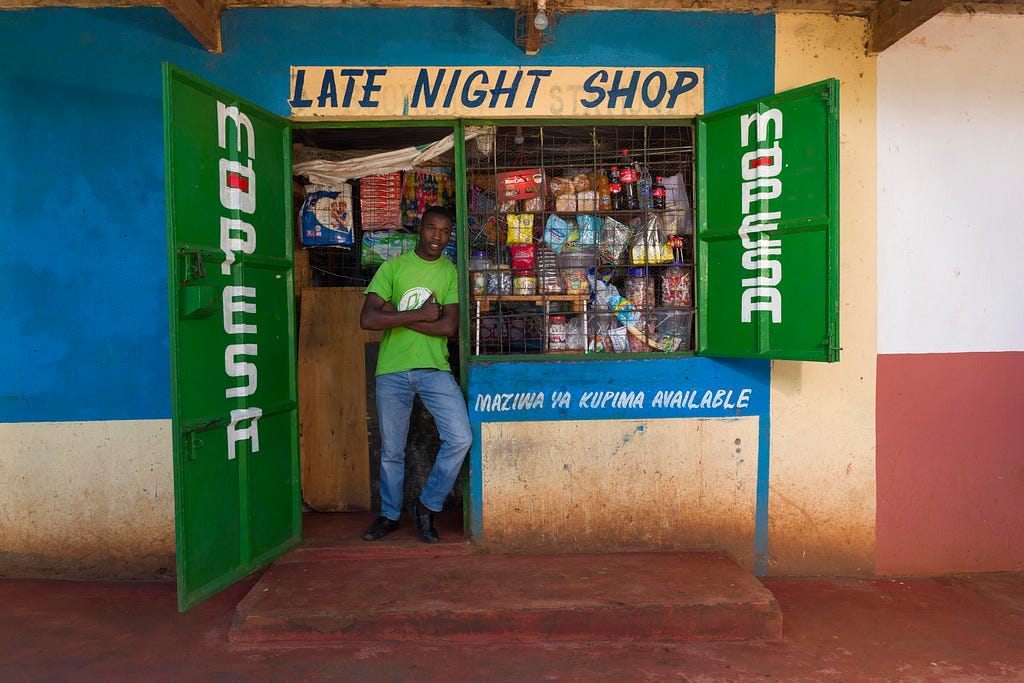
MESH: The first online community for entrepreneurs in the informal economy
Our programs
Connecting Kenyan entrepreneurs to information, peers, role models, and resources to empower them to build thriving small businesses
Why this program?
Why this program?
- Over one million young people enter the Kenyan job market each year, but 90% of them will never find formal employment.
- Most young Kenyans end up generating income in the informal sector, which accounts for over 83% of total employment and 91% of available jobs in the country.
- These young people are not just working in the informal sector; three million of them run micro-businesses of their own, often creating jobs for others.
- This program equips these young entrepreneurs with business, financial, and digital skills to empower them to build more resilient businesses that are better positioned for growth.
Program overview
Almost a third of 15- to 24-year-olds in Kenya run businesses—selling snacks, growing vegetables, or running dukas (convenience stores) that meet the day-to-day needs of many underserved households across the country. This often-overlooked group contributes an estimated $290 million to the economy every month.
Despite young Kenyans’ reliance on and contribution to the informal economy, the education system does little to equip them for it. Schools still prepare young people for a formal working world that is simply unavailable to them.
Therefore, there is an acute need to provide these young people with the skills to build better businesses, manage their money, grow their success, and give back to their families and communities. With adequate guidance, these young entrepreneurs can become the stabilized bedrock of Kenya’s informal sector that many of them aspire to be.
Strive Community is passionate about supporting peer learning because research shows that young people in particular want to learn from and be inspired by successful peers who have experienced what they’re facing. Academic programs and typical entrepreneurship courses can help one learn the basics of starting a business, but they can sometimes be isolating and intimidating for young entrepreneurs. Experienced entrepreneurs say that the best lessons and secrets are shared directly by other experienced business owners. Platforms that enable peer-to-peer support create a needed ecosystem for new entrepreneurs to access information and trusted support 24/7. This has been shown through Shujaaz Inc’s work to help young people’s businesses succeed, their incomes increase, and their families and communities prosper.
About MESH
MESH is the first online community for entrepreneurs in the informal economy. After two years of research, MESH launched in 2021, and already hosts over 100,000 members. MESH allows young entrepreneurs to connect and grow their networks, to boost their skills and their earnings through unique peer-to-peer training content, and to access opportunities tailored to them. The fast-growing, young MESH team is working to rapidly expand the community across Kenya, enabling millions of young entrepreneurs to build the networks, skills, and opportunities they need to thrive.MESH is part of the Shujaaz Inc network of social ventures.
About Shujaaz Inc
Two-time Emmy Award-winning network of social ventures Shujaaz Inc launched in 2009 with a youth-facing multimedia brand. Their namesake first venture, “Shujaaz,” follows the story of a 19-year-old radio DJ and influencer living in the outskirts of Nairobi. The platform, which evolved from a comic book, brings young people together to talk about their experiences and the challenges they face. More than a decade on, Shujaaz (which means “hero”) reaches 9.5 million 15- to 24-year olds—71% of young Kenyans and 15% of young Tanzanians.
To empower these young people to build thriving small businesses, Strive Community has partnered with MESH, which is part of the Shujaaz Inc network of social ventures.
By working with MESH – an online community for entrepreneurs in the informal economy, this program enables young entrepreneurs to make meaningful connections with peers they can trust.
MESH combines business skills programs with peer-to-peer networking and role-model mentoring. As part of the MESH community, members can access an extensive library of peer training videos and connect with peers and mentors who have complementary skills or interests. With Strive Community, MESH will also be able to test the efficacy of using aggregated and anonymized data to match learners with new services providers—such as banks and fintechs—or market opportunities—such as fast-moving consumer goods retailing. The MESH app can be downloaded from the Google Play Store in Kenya or at www.mesh.life.
“I have been on MESH for more than two years and so far the journey has been good. In terms of business, I have better strategies on how to handle business, like record keeping, savings, customer retention, customer feedback, and many more. Through posting my hustle daily, I have also gotten a lot of customers. I can't wait to see what the future holds for me on MESH.”
KAstar
MESH small business user
Share this article



